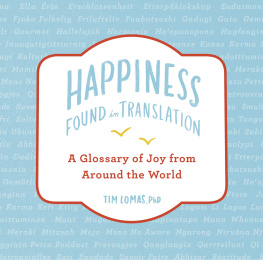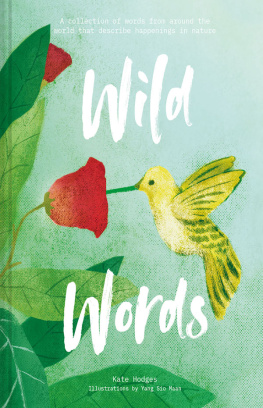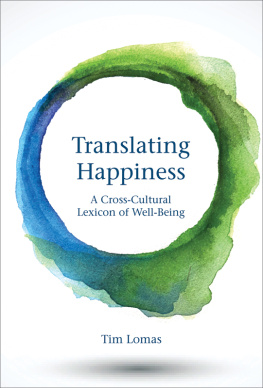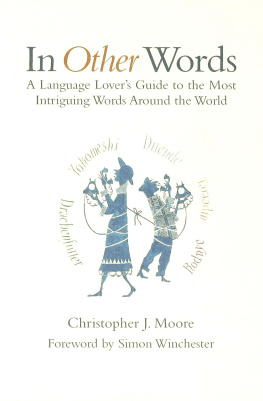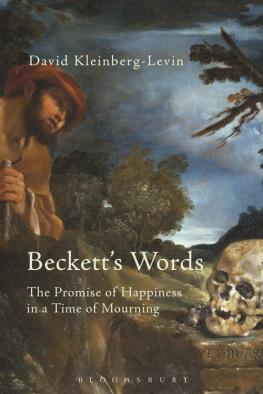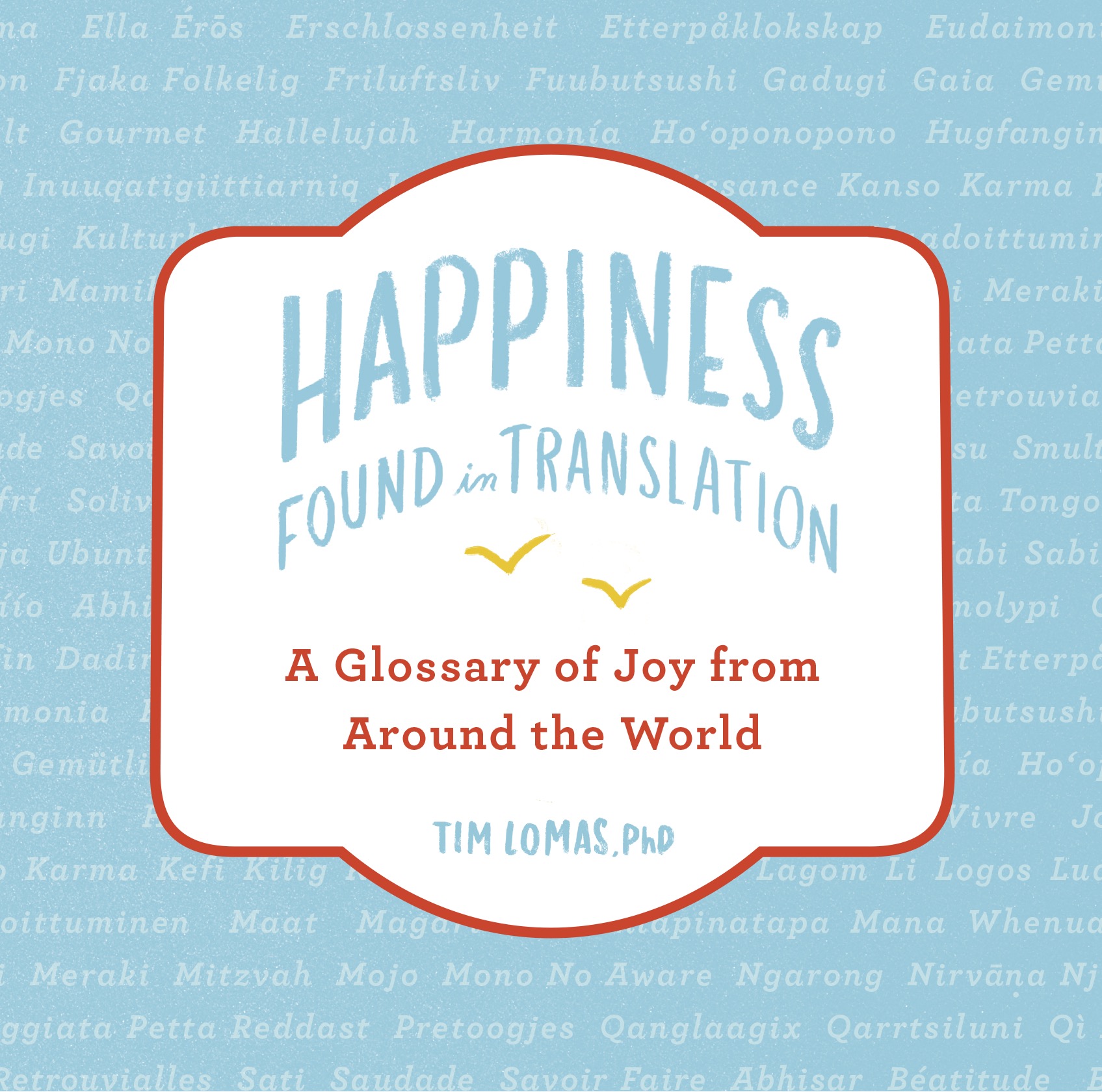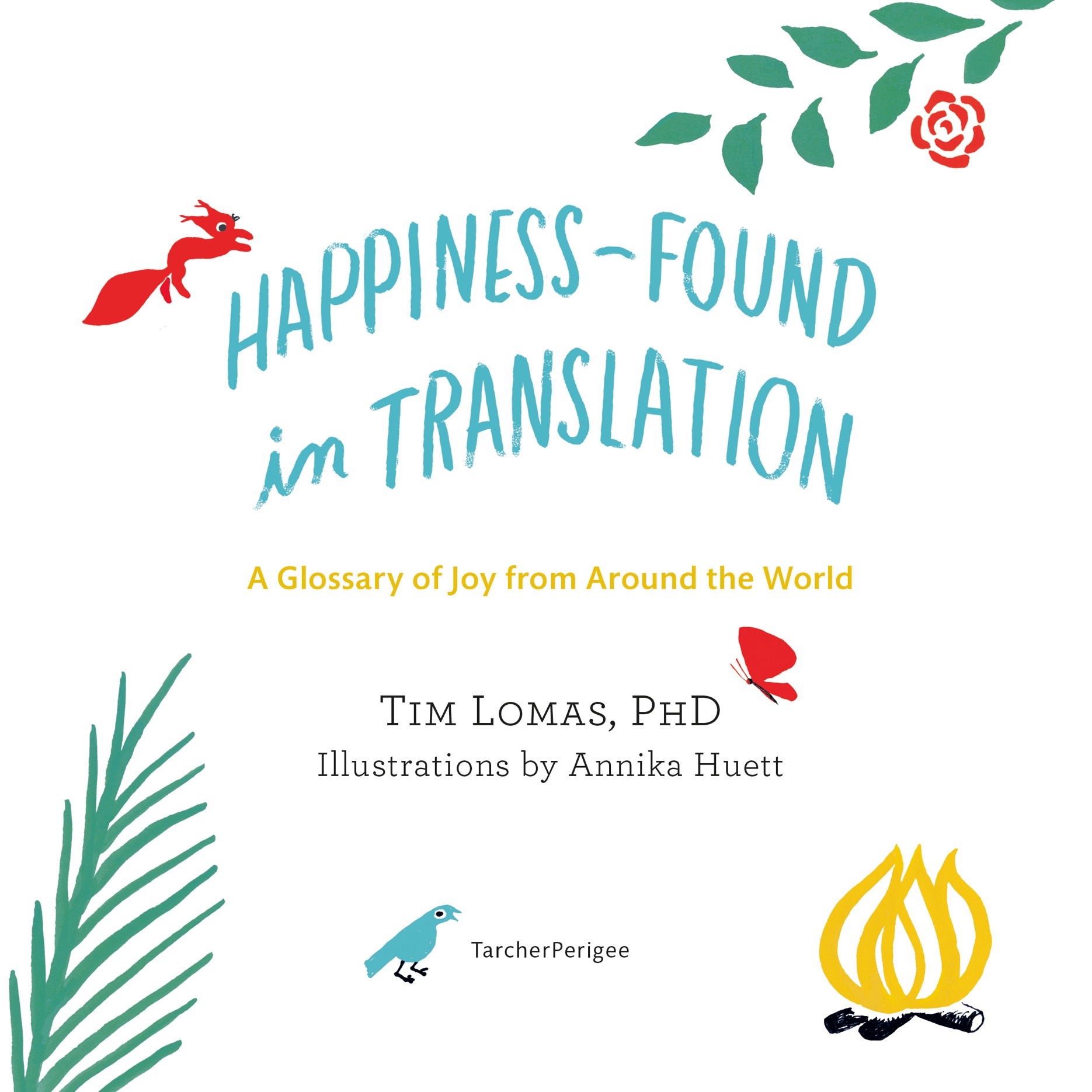A simple yet thought-provoking read that will change the way you think about, and define, happiness.
Marc and Angel Chernoff, New York Timesbestselling authors of Getting Back to Happy
This little book had a big impact on my heart. Not only do I now have a better understanding of the language and nuances of happiness, I can express the feelings I never had words for before. Every page made me smile.
Courtney Carver, author of Soulful Simplicity
Delightful!
Martin Seligman, PhD, bestselling author of Learned Optimism

An imprint of Penguin Random House LLC
penguinrandomhouse.com
Copyright 2019 by Tim Lomas
Penguin supports copyright. Copyright fuels creativity, encourages diverse voices, promotes free speech, and creates a vibrant culture. Thank you for buying an authorized edition of this book and for complying with copyright laws by not reproducing, scanning, or distributing any part of it in any form without permission. You are supporting writers and allowing Penguin to continue to publish books for every reader.
Illustrations Annika Huett, 2018
TarcherPerigee with tp colophon is a registered trademark of Penguin Random House LLC.
Library of Congress Cataloging-in-Publication Data
Names: Lomas, Tim, author.
Title: Happinessfound in translation: a glossary of joy from around the
world / Tim Lomas, PhD; illustrations by Annika Huett.
Description: New York: TarcherPerigee, [2019]
Identifiers: LCCN 2019008665| ISBN 9780525538080 (hardcover) | ISBN 9780525538097 (ebook)
Subjects: LCSH: Happiness. | Emotions.
Classification: LCC BF575.H27 .L653 2019 | DDC 152.4/2dc23
LC record available at https://lccn.loc.gov/2019008665
Penguin is committed to publishing works of quality and integrity. In that spirit, we are proud to offer this book to our readers; however, the story, the experiences, and the words are the authors alone.
Version_1
For Kate and the whole family

Introduction
The language of happiness
Happiness is a many-splendored thing, a dazzling kaleidoscopic wonder. Few words, in fact, harbor as many delights and treasures. To appreciate this, take a moment to consider all the beautifully varied experiences that make you happy...
Cuddling up with your partner, perhaps, wholly content and cocooned from the outside world. The giddy joy of reuniting with a loved one after a time apart. Breaking bread with close friends, drinking and laughing long into the night. Switching on your out-of-office e-mail and disappearing from view on holiday. Lying on golden sands, the sea breeze on your skin, with nothing but the sound of lapping waves rippling through your mind. Savoring a perfectly delicious butterscotch ice cream. Watching your child graduate after years of toil. Seeing your parents smile, and knowing that youve done them proud. The list is infinite.
This exercise shows the bountiful nature of happiness, but it also raises a strange issue: the limitations of language. If we can use happy for all the experiences above, and many more besides, then what on earth does the term mean? Im not suggesting it means nothing. Rather, it means toomuch. Its a crazily broad label, sheltering within it vast realms of feeling and experience. And fair enough: sometimes a broad label is useful. A person can like reggae, ska, jazz, blues, swing, funk, punk, rock, and soul, but it can be handy to simply state that theyre really into music. Likewise, sometimes it can be sufficient, and greatly reassuring, to just say, Im happy.
At other times though, more precise language is immensely valuable. Just as it is useful to distinguish between different music genres, so do we benefit from being able to conceptualize our happiness with greater precision. For doing so can help us better identify, understand, remember, communicate, discuss, and cultivate these precious experiences. Recognition of this fact underlies recent research into the value of emotional granularity or differentiationour ability to appraise subjective experience with greater or lesser degrees of specificity. Indeed, this ability can even influence happiness itself. Generally, the more awareness and understanding we have of our emotional lives, the greater our well-being.
Fortunately, the English language is fairly rich and detailed in that respect. In thinking and talking about happiness, were blessed with a wonderful array of relevant terms. When it comes to its calmer glades, for instance, we can call upon labels such as relaxation, peace, tranquility, serenity, quietude, and repose. These are all nearly synonymous, but crucially not quitehence the value of such differentiation. Or again, with more energized forms of well-being, it is useful to be able to speak variously of delight, joy, elation, enthusiasm, ecstasy, euphoria, and so on.
Yet English does not provide labels that perfectly suit every nuanced feeling. Have you ever experienced something you couldnt quite describea subtle physical sensation perhaps, or a strange, unfamiliar emotionbecause you lacked a suitable word? Its an odd, uncanny event. Without being able to label the experience, we may struggle to register it at all, and certainly to understand and articulate it. It hovers nebulously at the fringes of consciousness, before ebbing away irretrievably, like a dream that dissipates upon waking. It was for such reasons that the philosopher Ludwig Wittgenstein argued that the limits of our language define the boundaries of our world.
What is to be done in such instances? Luckily, a solution may be at hand. Even though English may not have coined a word for the experience in question, another language might have! These are known as untranslatable wordsthose that lack an exact equivalent in our own tongueand they are at the heart of this book. For I have been on a quest to collect untranslatable wordsthose relating to well-being in particularfrom across the worlds languages. The result is an evolving positive cross-cultural lexicography that now includes more than a thousand words. And this book features an enticing selection of one hundred of the most evocative and interesting of those terms, each brought to life by a gorgeous illustration.
First though, lets dwell a little longer on this very notion of untranslatability. For it is my contention, and my hope, that we can use these words to augment our vocabulary of happiness, and even to enrich our experience of life itself...

